The roosters living outside our window announced the workday had started. We were ready to wake up, anxious to drive north to Gbintiri for the Celebration, and also simply ready to give up trying to sleep comfortably. Our last few nights have been interrupted by sounds from a nearby hotel. The wooden headboard to our bed had four roughly hewn drawers, two stacked on each side. Each was large enough for a pair of small shoes, or possibly a water bottle. The two-story, four room hotel had an active night life, and every few hours when their party became too lively, I would don my headlamp, snatch something dangerous looking within my reach, fling open the drawer next to my head and stab at the large rodent in room 2A. Sometimes the party would scamper off to room 2B, and I would crawl over to Beth’s side of the bed and try a more stealthy approach. Mostly, I postponed their celebrations for a couple of hours. Using my mini tripod as a pair of pincers, I did end up shortening one of their tails. I expected word to spread of the mighty white hunter, but they didn’t seem impressed, and continued to drop by. So we said farewell to our little guesthouse and began the two hour drive further north toward the border of Ghana near Togo and Burkina Faso.
One of the northernmost villages of the Komba people is Gbintiri. Two years ago, when Beth and I were last here, the road north was almost entirely a dusty red ribbon cut straight through the bush. It took hours of kidney crushing bumps down the washed out route to travel a short distance between villages. During the wet season, the road turned to slop, and communities were simply cut off. Today, however, a thin asphalt or “sealed” road as it is called here has made it most of the way north. The government intends to connect the road to Burkina Faso. But I’m getting ahead of myself.
We have been slow to blog because we have been just too exhausted at the end of the day to keep our eyes open. After the cool trickle of water from the shower dissolves the salty white lines around our necks and the orange-red dust is rinsed into the drain, we spend an hour eating dinner and slurping down bags of filtered water. So before I describe Gbintiri, I’ll share some highlights from the day before.
After a few more recordings, rounding out our collection of Dagbani language choirs, prayers, and Bible stories, we drove to one of the small villages where the water filters we have raised funds for are having significant impact. Water is life here in the bush, and women and kids spend time walking miles to find water. Most of the “bore holes” (wells) donated by NGOs are close to the road, where a large drill rig can be driven in. Departing the main road and driving the truck down a motorcycle and donkey path for 20 minutes brings us to one of the countless small villages where the only water available is miles away in ponds and rivers where livestock wallow.
The water filters that Ray helped distribute months ago are inexpensive. They are made by a company in Accra. A simple clay filter and plastic bucket allows gravity to slowly pull the water through to the spigot at the bottom. Our visit to the village would help us refine the program, and understand if there were problems with how the filters were being used. As is the custom, we stopped first at the chief’s hut to thank him for letting Ray donate the filter to the women of the village. Standing watch on each side of the door was carved wooden posts topped with small gourds and covered in animal blood and rotting parts. The chief was an animist, or “traditionalist” as they refer to themselves. I took a breath and we followed Ray into the circular mud hut. The hut stank. My eyes slowly adjusted to the windowless room. Another roughly carved post covered in animal parts was behind the chief, who reclined on a 8” riser of adobe. I impatiently waited for Ray to provide introductions and get permission to walk around the village and talk to the women who had been using the filters. Moments later, we were in the sunshine, lookup at the bright sky and breathing deeply. With permission, we entered a compound and talked to the wife. She demonstrated her working water filter, and told us how important they were for her young kids. I took pictures, played with the kids, and managed to coax Emily and Ray into demonstrating how the women pound cassava roots to make fufu, a local dish of sticky white goo that is dipped with your hand into a sauce.

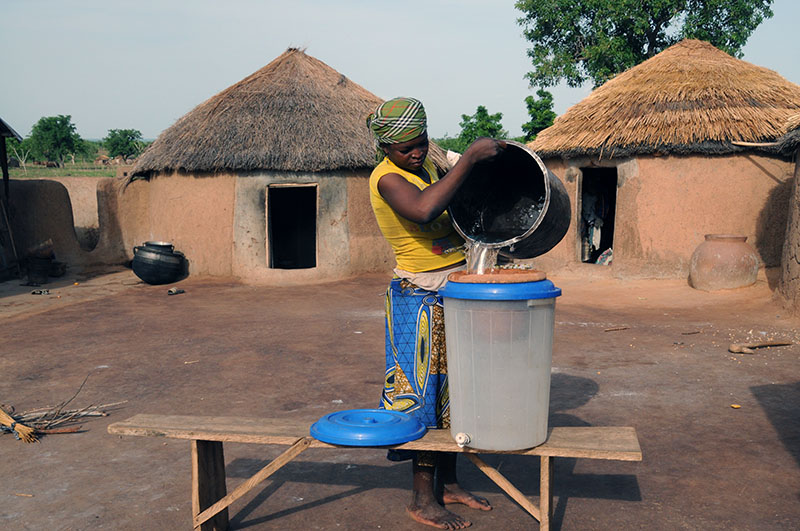

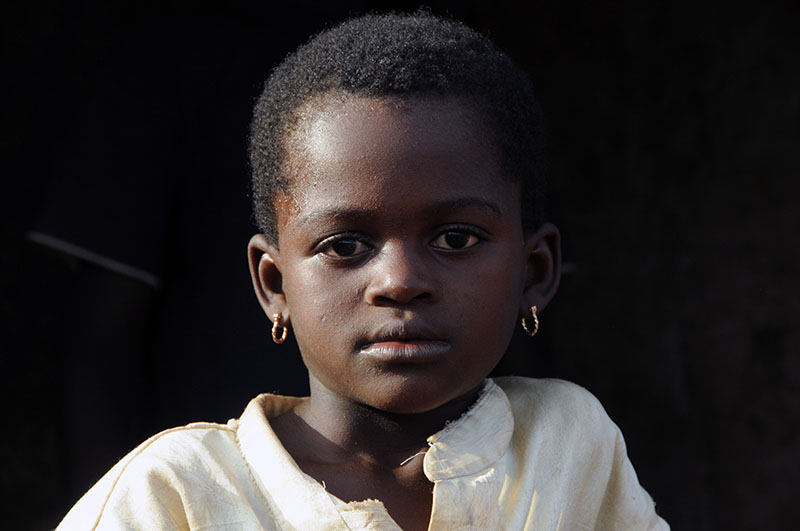
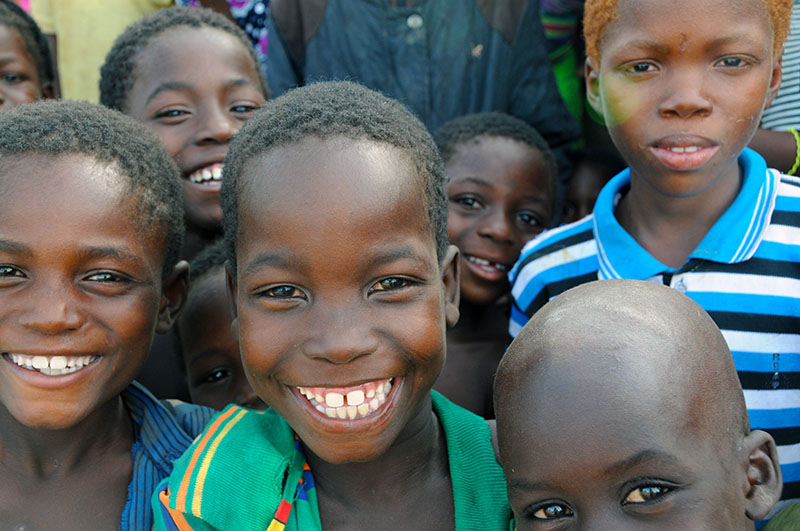
The water filters are working well, and while the clay pot only lasts 2 or 3 years, they are effective, and reduce the prevalence of parasites and other problems with their youngest kids.
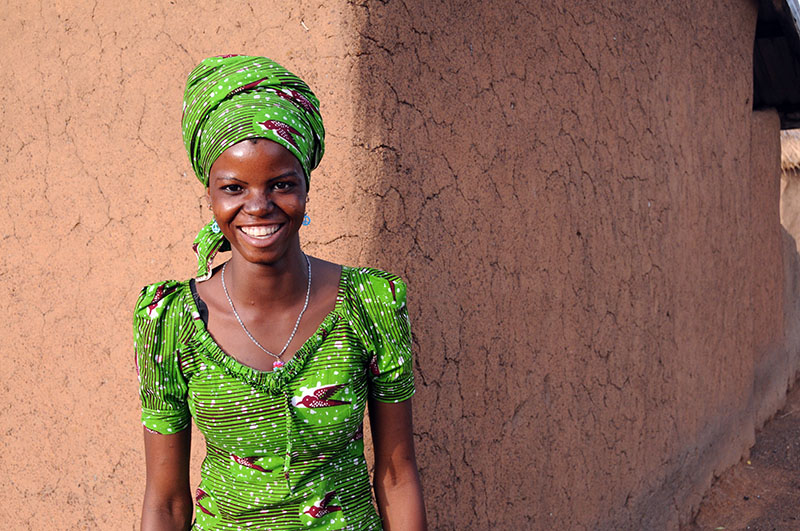
Back to our story… heading to Gbintiri
After a few hours on the uncompleted road, we reached the small outpost of Gbintiri. Mud huts, tin roofs, power lines, pigs, chickens, and a few cement buildings, such as the school, stood out in contrast to the miles of surrounding bush. An unfinished gas station hoped for completion of the road.
Two years ago we recorded some fantastic choirs here and began our partnership with the Lutheran Bible Translators. LBT had been working with a group of local pastors to translate the New Testament into Komba. They were just finishing up the translation two years ago. However, with the Komba language first written in 2004, there were not many native readers, which is precisely why the audio version was so important. OneWay funded local Komba speakers to participate in a full audio recording of the first written version of the Komba New Testament.
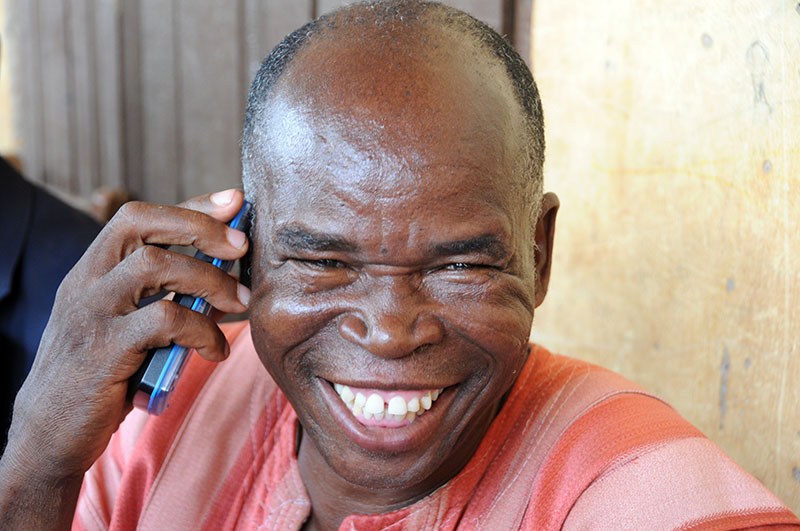
The celebration scheduled for today was to mark the completion of that project. Future Bible+ audio players would have the local choirs, community health information, Bible stories, and the newly completed NT.
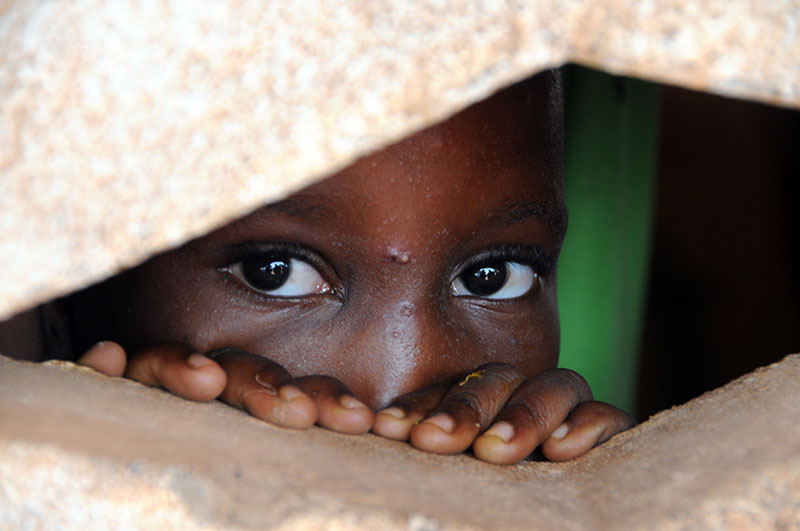
Small boys picked up wooden benches, struggled to lift them, and then rested them on their heads, carrying the to shady spots in front of the stage, which was simply the side of a building. Ray had given permission to rent a loudspeaker system, and African beats were blasting. The shady spots filled quickly. African dresses and shirts gave vibrant, loud colors to compliment the earth-tones of the landscape. People kept coming. A few folks were beginning to dance to the painfully loud music. It finally hit me how big a celebration this was going to be…
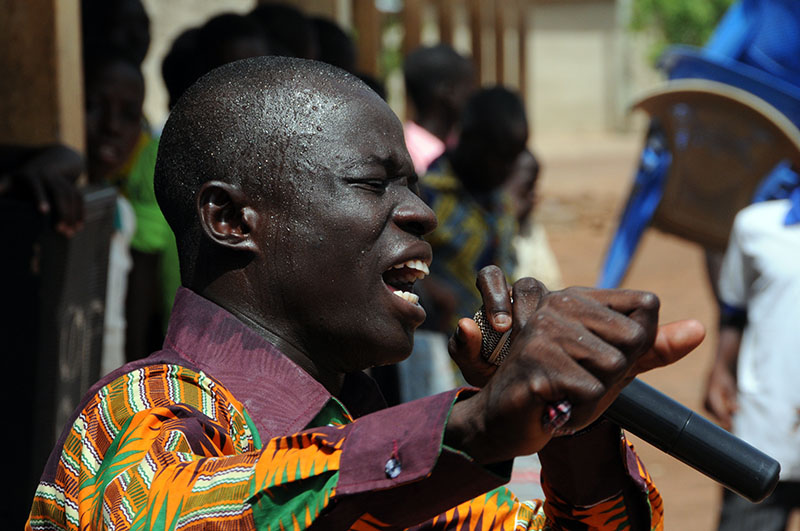
After formal introductions, prayers, and a song or two, Beth and I took our turn to address the crowd. We thanked them for their help and participation. The people of Ghana are wonderful, and we were warmly received. Wow. More than 2000 people were in the crowd, and after we examine the photos, I think the number will be closer to 2500.
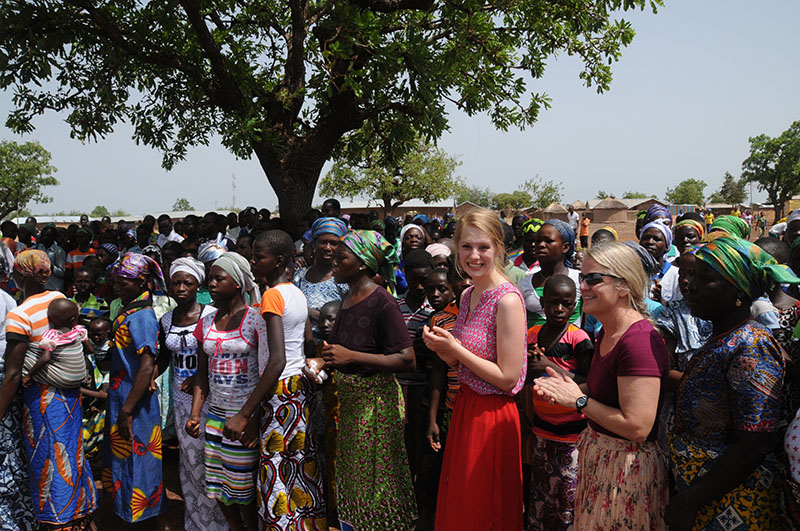
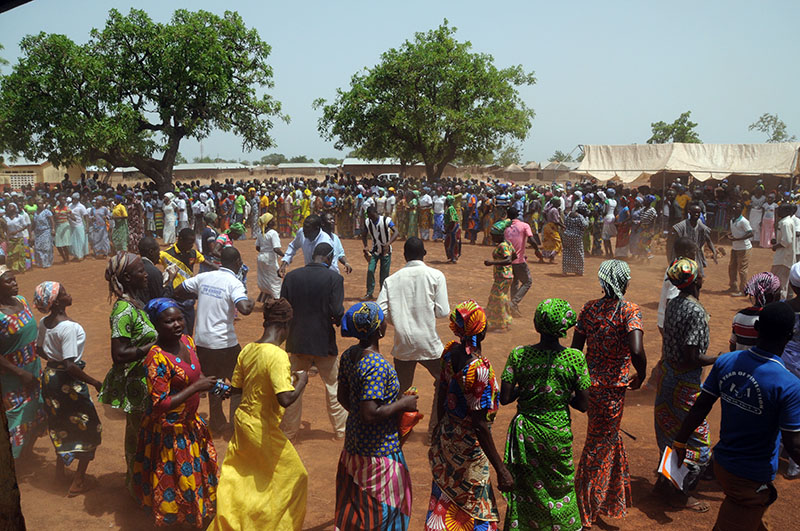
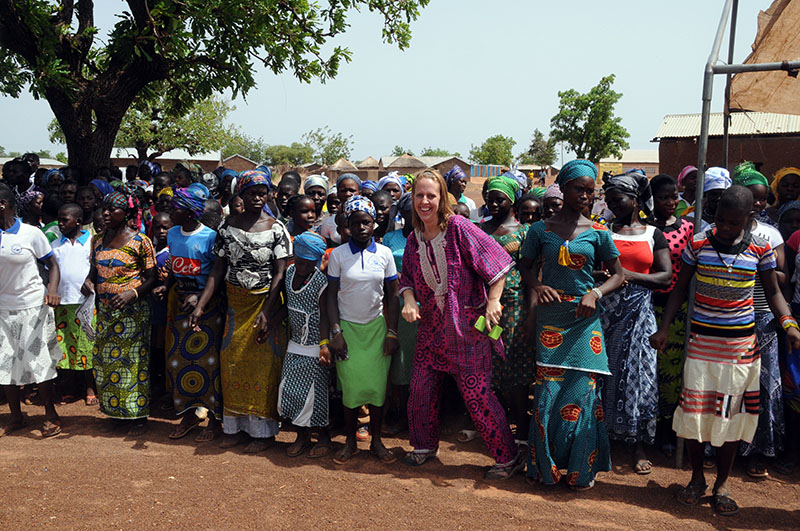
Dance! After about 90 minutes, it was time to dance… and dance we did! Emily VanHuis led the way, gathering all the women into a large dance circle. Ok, maybe not, but everyone did join in and dance. The lively colors of Africa swirled in a giant circle, breaking out into the middle when the circle got too tight. My ears throbbed with pain as I passed the speaker, but was easily outweighed by the joy of the celebration. Wow! If only we could get suburb families to dance like Africans. Too much fun….
AND WE HAVE VIDEO!
Ok… we are on our way home now. The next blog post should be from the USA, wrapping things up with some pictures of Ray and his family.

So glad to hear that this trip had so much success. Completing the goals of this visit and recording it all with word, song and dancing!
We thank God for this work and all that this team and their supporters back home have accomplished.
Pete and Beth, we see you soon!
Awesome post and pictures! Praising God for his provision and protection.
And regarding suburban dancers, have you not seen my facebook videos? ;)
Oh, I forgot entirely about those Facebook videos…. I’ll call you up to help lead the dancing when we do the African service at OWM.
Fantastic dancing and celebration. Job well done to all! Glad you are home safe and that your work was so fruitful! Wish I could’ve seen Mrs. Wonderful doing her jig!!! SO MUCH JOY!